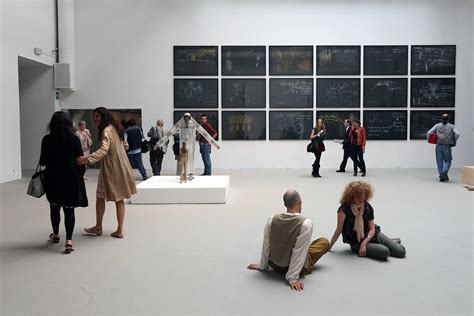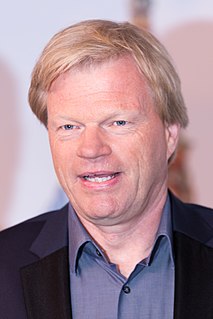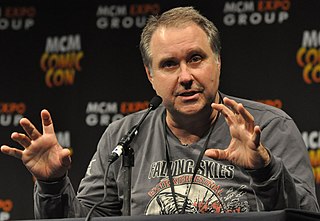A Quote by Tino Sehgal
One often forgets that even if art is a very successful field in contemporary culture, there are still a lot of people alienated by it. Even if people don't fully understand where my work is coming from, at least there's somebody who looks kind of sane standing in front of you and politely engaging with you. People react.
Related Quotes
Comedy is very important. For one thing, it keeps you sane. But it's not really a conversion. I mean, it's marginally a conversion, because if people tune in or go to a nightclub or even watch television, and hear that a lot of other people are laughing at something you thought was not funny, at least it'll force you to reconsider.
Comedy is very important, yes. For one thing, it keeps you sane. But it's not really a conversion. I mean, it's marginally a conversion, because if people tune in or go to a nightclub or even watch television, and hear that a lot of other people are laughing at something you thought was not funny, at least it'll force you to reconsider.
When people say that L.A. doesn't have a culture, I think it really does: a very old culture, and very specific. There's streets named after entertainers, and statues of entertainers, and it's great. Entertainment is still art, even if it makes billions of dollars. So it's like a city built on entertainment, and art in a way.
I think subjectivity plays into everything. It's unavoidable; you couldn't avoid it if you tried. I think, potentially, a lot more commercial movies, it seems to be that the people making the films are trying to elicit the same reaction. I think a lot of the most interesting work in art and in films are often kind of polarized opinions and affect people in very different ways, which may be less successful commercially, but they elicit a dialogue that's quite interesting.
I think that a lot of artists have succeeded in making what I might call "curator's art." Everybody's being accepted, and I always want to say, "Really? That's what you've come for? To make art that looks a lot like somebody else's art?" If I am thinking of somebody else's art in front of your art, that's a problem.
There is the specter of "realism" that is still haunting Chinese contemporary art - that art is only an instrument, an instrument to reflect society, that it must be useful for society. Also, I have noticed many Western media outlets are very insistent on understanding contemporary art in China through this kind of realist approach. Sometimes I even sense that they are intent on, as we say in China, "picking bones of politics out of an egg of art." Or perhaps they see art as merely an instrument to reflect society.






































